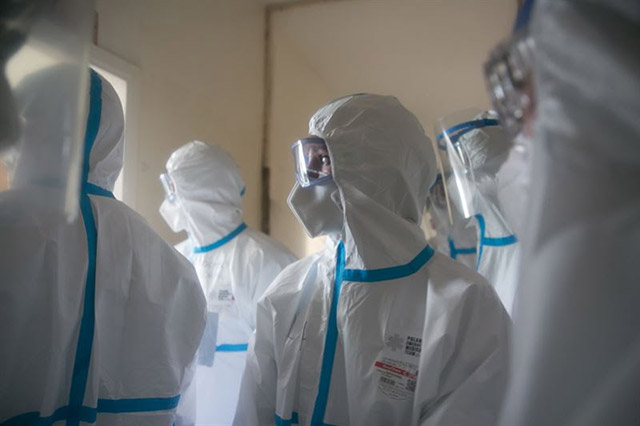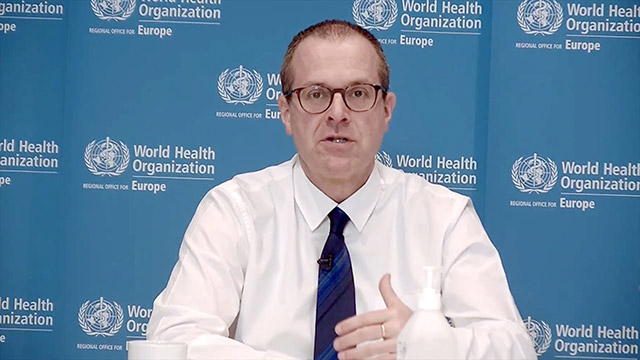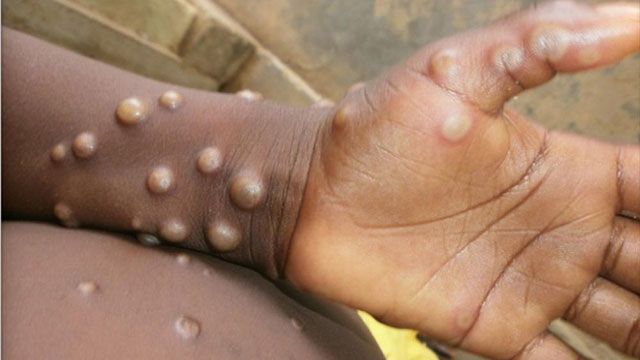Statement by Regional Director for Europe, Dr Hans Henri P. Kluge
As we mark two years of the COVID-19 pandemic in Europe and Central Asia, we are entering a new phase, driven by the highly transmissible Omicron variant sweeping the Region, from west to east.
Omicron is displacing Delta with unprecedented speed. Less than two months since it was first discovered in South Africa, it now accounts for 31.8% of cases across the European Region, up from 15% the previous week, and 6.3% the week before that.
The pandemic is far from over, but I am hopeful we can end the emergency phase in 2022 and address other health threats that urgently require our attention. Backlogs and waiting lists have grown, essential health services have been disrupted, and plans and preparations for climate-related health stresses and shocks have been put on hold across the Region.
Read also
While Omicron appears to cause much less severe disease than Delta, we are still seeing a rapid rise in hospitalizations, due to the sheer number of infections. This is in addition to a Delta burden that has not entirely passed, and also to the high number of incidental admissions. Fortunately, hospitalizations with Omicron result much less frequently in ICU admission. As predicted, most people needing intensive care across the Region are unvaccinated.
On this day two years ago, France reported the first confirmed cases of COVID-19 in the Region. Fast forward 732 days to the present, and we should be proud of how far we have come and how much we have learned and adapted to this once-in-a-generation crisis.
But that did not come without the unacceptable human cost we know: every single hour since the pandemic’s onset, 99 people in the Region have lost their lives to COVID-19. We mourn the more than 1.7 million people in the European Region who are no longer with us. Gains in poverty reduction have been reversed, with more than 4 million people in the Region now pushed under the 5.50 USD a day poverty line. Children’s education and mental well-being have suffered immensely.
We do appreciate the development and distribution of safe and effective vaccines, with more than 1.4 billion doses administered in the European Region, saving hundreds of thousands of lives. Huge advances in medical science and cross-border collaboration have led to no less than ten different approved vaccines currently rolled out, with more in the pipeline. This is one of the greatest scientific achievements in decades.
We must pay an historical tribute to our health workers, who have borne the brunt of this crisis and continue to put themselves in harm’s way in the service of their patients. We cannot say that they have come out intact: research shows that as many as 43% of frontline health workers are experiencing significant levels of anxiety, and a large proportion of clinical staff working in intensive care now meet the clinical threshold for post-traumatic stress disorder. Supporting them and their mental health must be a central pillar of building back better. With them, we recognize the sacrifices made by almost all of us, knowing that these sacrifices have been much bigger for the people already underserved in life.
Although Omicron offers plausible hope for stabilization and normalization, our work is not done. Huge disparities in access to vaccines remain. If 2021 was the year of vaccine production, 2022 must be the year of vaccine equity in the European region and beyond. Too many people who need the vaccine remain unvaccinated. This is helping to drive transmission, prolonging the pandemic and increasing the likelihood of new variants.
This pandemic, like all other pandemics before it, will end, but it is far too early to relax. With the millions of infections occurring in the world in recent and coming weeks, coupled with waning immunity and winter seasonality, it is almost a given that new COVID-19 variants will emerge and return. But with strong surveillance and monitoring of new variants, high vaccination uptake and 3rd doses, ventilation, affordable equitable access to antivirals, targeted testing, and shielding high-risk groups with high quality masks and physical distancing if and when a new variant appears, I believe that a new wave could no longer require the return to pandemic-era population-wide lockdowns or similar measures.
WHO/Europe Press Office





























































